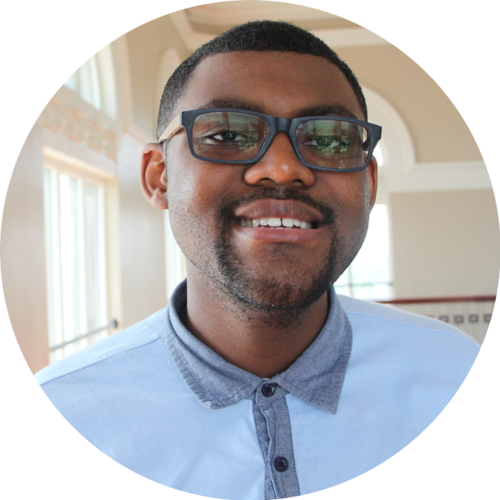Chicago Teachers Union Authorizes Potential Strike
Last year Robin Boose, a teacher at Ashe Elementary located in Avalon Park, school had to deal with teaching a class with 40 students. Talking about this situation brought her to tears. She felt it was ridiculous to teach an overcrowded classroom all by herself.
“You know I’m stressed out, I’m calling the teacher’s board all that… still don’t understand how they can treat our black and brown children like this,” said Boose.
Before she became a teacher, Boose spent 15 years as teachers assistant before earning her masters degree in 2007 from Roosevelt University in elementary education. A member of the CTU for 26 years primarily working on the rank and file bargaining team, a possible strike is worth it to her.
“It’s extremely important because if we don’t make a stand now, it’ll never happen,” she said. “At the same time, if the Teachers Union decides to strike, Boose hopes that students don’t have to miss out on their education. “ I hope that we can come to some type of consensus, so you know children don’t have to be out of school, and you educators are respected for what they do.”
The Chicago Teachers’ Union have voted to authorize a strike. In order for the strike to be approved, 75 percent of CTU members had to vote in favor of the action. On Sept 26, CTU leaders reported around 10 p.m. that 94 percent of members had voted yes. If a deal cannot be reached within the next few days, a walkout could begin as early as Oct 7. The main demand the CTU is asking for is an increase in pay, particularly a 15 percent increase over the next three years and for smaller class sizes, fully staffed supports, and community schools. The total cost of the demands amount to $452 million. In September 2012, twenty six thousand members of the Chicago Union picketed in front of 580 schools for seven days. Teachers demanded smaller class sizes, better pay and a language, art, music and physical education curriculum and wanted the city to stop privatizing schools. In 1987 the first CTU strike lasted 19 days. During that time, approximately more than 500 schools were closed. At the time the CTU was demanding a 10 percent increase in the first and second year of a two year contract.
Whether the Chicago Teachers’ Union (CTU) decides to strike or not, experts say the public school system needs more money.
“I mean, we have clerks and pair of professionals and support staff in our school building that qualify for food stamps and reduced lunch because they’re making below the poverty line,” said Anthony Cappetta, math teacher at Jones College Preparatory.
Teaching for 14 years, Cappetta said he’s disgusted by the conditions CPS teachers have to deal with.
“I think it’s unethical and outright unimaginable that we have 36 to 40 kids in some classrooms across the city. It’s ridiculous we have nurses only one day a week and there’s not a full time librarian in there,” said Cappetta.
Capetta noted former Chicago mayor Rahm Emanuel created several problems within the Chicago Public School system during his time in office. For example, he put individuals with no teaching administration experience in charge of running the school system like former CEO Forrest Claypool, who resigned in December 2017 amid accusations of covering up ethics violations. Emanuel also encouraged the privatization of the public school system.
According to Andrea Parker, teacher at Fulton Elementary School located on the South Side, privatizers are brought in to increase revenue for the school. As a result, directors, owners, and operators get paid more while teaching conditions and teachers’ salaries remain the same.
“I don’t think that one person or one group of people should make extreme profits off of public education, something that should be every child’s right,” said Parker. “ I don’t know why we can’t find funding, but we can find funding for other things that are not educational.”
Parker also explained what will be going through her mind as she casts her vote. “I know I will vote yes to strike, so the only thing that will be going through my mind is I’m willing to fight, I will do whatever it takes,” she said.
According to attorney Marie Paulpillai of Jurispoint LLC, there could be more strikes on the horizon for charter schools.
“Strikes at charter schools may become more prevalent as teachers bargain over issues that state law excludes from negotiations with public educators in Chicago,” said PaulPillai.
PaulPillai saw no issue with private education. Her firm has been able to resolve issues such as excessive use of force on children by staff, arbitrary penalties, discrimination against disabled students, and dishonest practices by reaching out to school owners and administrators. She also said that private schools provide freedom of choice and are a great alternative to public education.
“Competition and choice in the educational market would only serve to enhance educational experiences as schools compete for students by providing greater educational quality, accessibility and increased efficiency,” she said.
The CTU also had support from presidential candidate and U.S. Senator, Bernie Sanders. Senator Sanders was in Chicago this past Tuesday to attend a labor rally at the CTU’s headquarters on the as they began their authorization strike vote.
He was very happy to be in Chicago and have the opportunity to sit down with the CTU and help them negotiate a contract that’s fair and treats with the respect they deserve, according to the Chicago Sun Times.
“If I don’t sacrifice for the betterment of this next generation, who will?,” said Parker.


